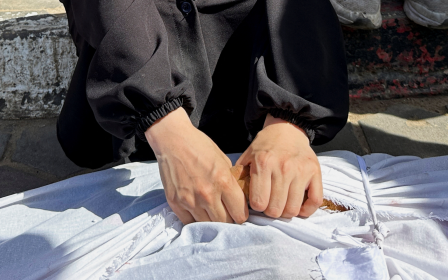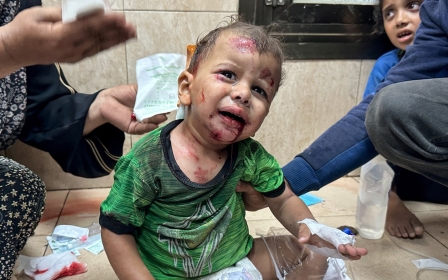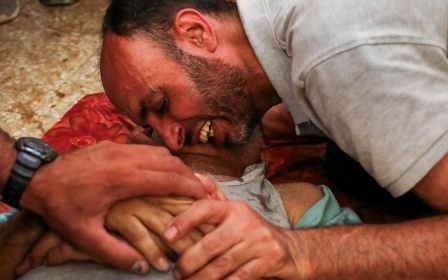War on Gaza: 'I don't want to die, mum'
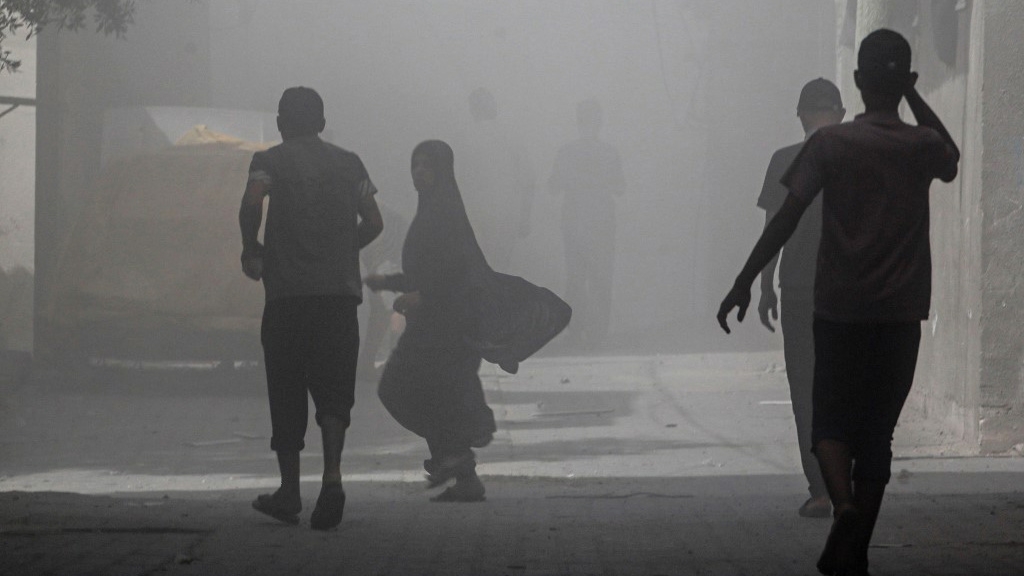
My family has grown accustomed to the monotony of survival. We have been repeatedly displaced by Israel’s relentless assault on Gaza, which has continued for more than eight months.
The constant evacuations, cramped living conditions, and scarcity of basic necessities have taken a toll. The passage of time seems to have become warped and distorted. The exhaustion, fear and desperation have blended together into a numb, relentless haze.
Every day is a struggle. Our lives are devoid of joy or happiness, stuck in a never-ending routine. My siblings ask questions that break my heart, reminding me of all the things we’ve lost and can’t get back.
When things get really tough, I try to pretend everything will be okay, even though I’m not sure it’s true. This war is terrifying. The Israeli army is destroying Gaza, and it’s hard to know what will happen next.
My bed at home in al-Maghazi camp in central Gaza was soft and comfortable; it made me feel safe. A few months ago, after my family was displaced to Rafah, I was forced to sleep on hard ground that hurt my body whenever I moved.
New MEE newsletter: Jerusalem Dispatch
Sign up to get the latest insights and analysis on Israel-Palestine, alongside Turkey Unpacked and other MEE newsletters
We soon returned to Maghazi after learning that Israel planned to launch a new invasion of Rafah, disregarding the welfare of displaced civilians. But we are now living with a relative, as our own home was burned and damaged, along with many others, when Israeli forces invaded the camp.
Our meals have gradually become smaller and less frequent. We can’t get fresh food or any of the traditional dishes we used to enjoy. I remember when milk and eggs were easy to buy; now they’re scarce. It’s hard to watch my younger siblings grow without the food they need to be healthy.
Frozen in shock
Saturday 8 June began like any other day in the wearisome routine of this war, as my father baked bread over the fire (since there’s no gas for cooking), and my mother and I prepared breakfast. But then everything changed.
The Maghazi area, which is not far from Nuseirat refugee camp, was supposed to be a safe zone - but the events of 8 June are now seared into my memory forever.
Follow Middle East Eye's live coverage of the Israel-Palestine war
As my parents and I prepared food, my siblings, young and frightened, stayed close by our side. They are constantly anxious about the threat of Israeli bombing, and we always keep up with the latest news, trying to anticipate what will happen next. But we could not have predicted the events of this day.
Suddenly, the air was filled with the deafening sounds of gunfire, like a relentless downpour.
This was the most terrifying moment of our lives, as we grasped the reality that we were surrounded and had no idea where to go next
We opened the window, gazing up at the sky and the landscape before us, trying to comprehend what was happening. We’d had no reason to expect an invasion, as there had been no warning to evacuate the area. But as we looked out the window, we saw tanks and artillery mere yards away.
As we stood, frozen in shock, we realised that our lives in Gaza could be turned upside down in an instant. People shouted in the streets, urging us to evacuate the area quickly. This was the most terrifying moment of our lives, as we grasped the reality that we were surrounded and had no idea where to go next.
The chaos on the streets was heart-wrenching. We fled with nothing but the clothes on our backs and a bag of essential documents, leaving behind everything else we owned. My siblings broke down in tears, overwhelmed by the sudden panic.
No clear destination
As I grasped their hands, my only concern was ensuring our survival. I thought only of keeping my family alive, no matter what we lost. The sounds of gunfire and artillery filled the air, and the streets were a chaotic sea of people fleeing for their lives.
I saw a mother clutching her newborn, a man carrying his elderly mother, and a pregnant woman struggling to walk - all desperate to escape the danger.
The constant bombardment was terrifying. We ran through the streets, with no clear destination in sight. Bombs exploded in the sky as we fled; even the shelter of a nearby camp seemed to be under threat, as fleeing residents warned us that the artillery was closing in, and we had to get out as fast as possible. We continued to run for our lives, unsure of what lay ahead.
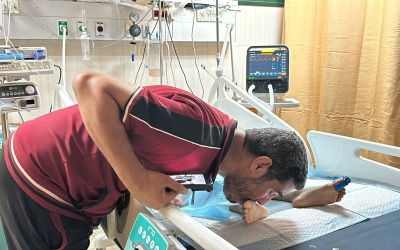
At one point, we had to cross the street in front of Israeli tanks, knowing they could target us at any moment. The thought of being hit by shrapnel or a stray rocket was terrifying.
We survived by some miracle, displaced for the sixth time in this war. My little sister cried: “I don’t want to die. I don’t want to die, mum. We didn’t take the toys from home.”
The air was white with dust; we couldn’t see each other. Bullets cracked all around us. A helicopter flew low, shooting at anyone moving on the streets. We continued to run, eventually finding safety in Zawayda.
More than 270 people were killed in Israel’s horrific massacre at Nuseirat camp, with hundreds more injured. Emergency crews were overwhelmed by all the calls for help. I thank God that my family and I survived the simultaneous attack on Maghazi, where we have now returned - even if it is only to live through the next massacre.
The views expressed in this article belong to the author and do not necessarily reflect the editorial policy of Middle East Eye.
Middle East Eye delivers independent and unrivalled coverage and analysis of the Middle East, North Africa and beyond. To learn more about republishing this content and the associated fees, please fill out this form. More about MEE can be found here.



